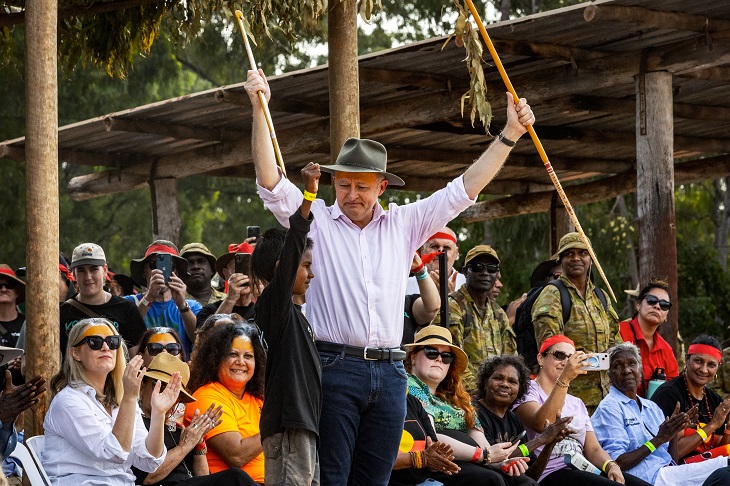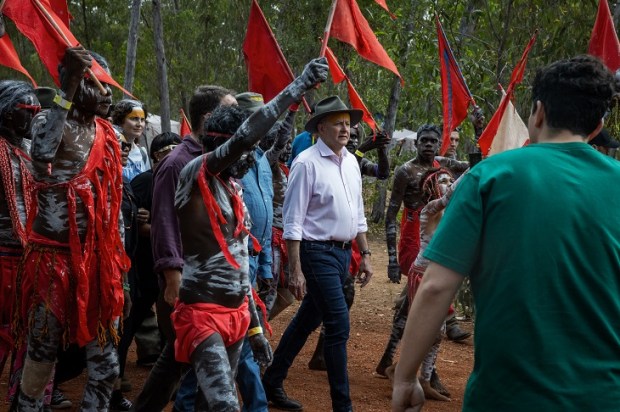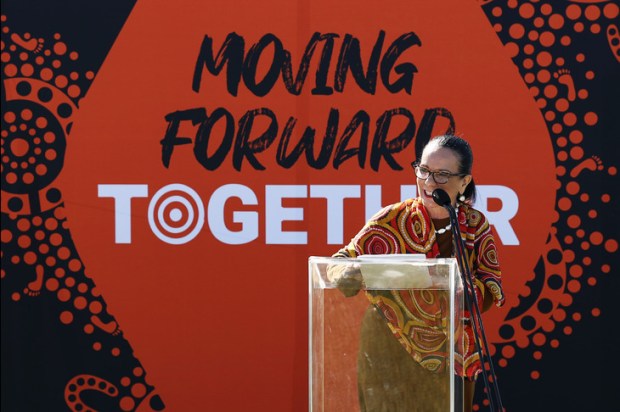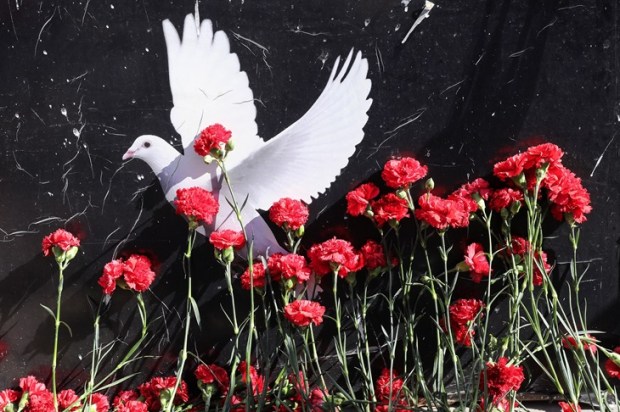There is significant confusion about what the Indigenous Voice entails, what its powers are, and about its consequences. The latest flashpoint has been the debate over the relationship between the Voice, treaty, and compensation.
Anthony Albanese has attempted to separate the Voice referendum from the issue of whether there is a ‘treaty’ between Australia and Indigenous Australians and whether there is ‘compensation’. Does this stack up?
It turns out that treaty and compensation are very much on the ballot in the coming referendum, as we will see below. The government has a responsibility to level with Australians, treat them like adults, and be upfront about its intentions. Whatever you believe about any of these issues, you should be allowed to make a fully informed decision based on complete information.
This is part of a broader problem: the government is trying to be too clever by glossing over details that it thinks will poll badly. But, in so doing, they create a worse problem: the impression that the government is gaslighting and misleading.
Australians might want a treaty and compensation. They might not. It is up to Australians to decide. But, it is dishonest and insulting to expect Australians to vote on something under false pretenses or to obfuscate about what the vote entails. Voters deserve to know what they are voting for and what it implies.
Let’s look at Anthony Albanese’s comments:
In the past, Albanese has specifically stated that there should be ‘compensation’, ‘treaty’, and land rights negotiations. These comments were in the 1980s. Albanese could have since changed is mind. However, this appears unlikely given that he side-stepped questions over this and verbally jostled with the journalist who reported on his statements.
Anthony Albanese has also been pictured in a t-shirt specifically calling for a treaty. This was printed on merchandise at a Midnight Oil concert. He has tried to brush this away, claiming it was simply merchandise without denying the sentiment. But a politician – especially a senior one – has a responsibility to vet the slogans they wear. It is inappropriate for a Prime Minister to adorn himself in a political slogan and then side-step comments about whether or not he believes in that slogan.
Anthony Albanese has committed himself to the ‘Uluru Statement’ in full, which itself involves a treaty. Indeed, treaty is one of the core parts of the Uluru Statement and follows from Voice.
We can next look at the government’s funding initiatives. The government has earmarked money towards treaty formations. Reportedly, the government has already spent $900,000 on treaty-related matters.
What are the lawyers saying? Do lawyers who support the Voice believe that the Voice will lead to a treaty? Constitutional Law professors – and yes advocates – also note that Voice is a stepping stone towards the creation of a treaty. To be clear, this is not to pass judgment or asperse their comments. It is simply to highlight what the Voice would entail. They state:
‘The Uluru Statement from the Heart called for a constitutionally protected Voice to Parliament, treaty, and truth. The reforms are listed in a sequence. The sequence is deliberate, and understanding the order is central to the message of the Uluru statement.’
‘The voice will be an enabling mechanism for First Nations people in any treaty negotiations.’
They also note that the Voice confers significant power on its members and is a significant change to Australia’s constitutional structure. They state that the Voice will be able to ‘compel’ the government in relation to policy and decision-making:
‘The Voice to Parliament is a structural reform. It is a change to the structure of Australia’s public institutions and would redistribute public power via the Constitution, Australia’s highest law. The reform will create an institutional relationship between governments and First Nations that will compel the state to listen to Aboriginal and Torres Strait Islander peoples in policy and decision-making.’
These comments are from law professors who support the ‘yes’ campaign and are involved in the Voice referendum and Uluru statement. The comments are not from doomsayers or ‘chicken littles’. They are also not from extremists or people on a frolic of their own. That is, ‘yes’ advocates who have significant legal knowledge note that the Voice will wield significant power and that it will drive treaty.
It is in the ‘yes’ campaign’s best interests to be clear and upfront. Voters are very unlikely to vote for a proposal when they suspect they might be hoodwinked. And, even if they like the idea of a ‘treaty’, the obfuscation sows other seeds of doubt. Thus, academics who are prepared to talk about a treaty have done the ‘yes’ campaign a service through their honesty. People might disagree with their views, but at least they feel respected rather than infantilised. And this, in turn, elevates the conversation and builds collaboration and understanding.
The government’s rhetoric over ‘treaty’ is part of a broader problem. The government continually spreads misinformation about the Voice. This undermines the ‘yes’ campaign. Australians will not vote for the Voice if they feel the government is gaslighting.
The double-speak extends to the Voice’s powers. People might want a powerful Indigenous Voice. They might not. Whichever it is, they deserve to be told the truth about what it can, and cannot, do. For example, in his Second Reaching Speech, Attorney General Mark Dreyfus stated that the Voice would pertain to matters that ‘differently to other members of the Australian community’. This is inaccurate. The text imposes no such limitation.
The government’s misinformation on the Voice is ironic given their attempts to stamp out ‘so-called’ misinformation on social media. Of course, the government’s prohibition on misinformation does not extend to itself. A curious observer might wonder why that is the case.
It is up to voters to decide whether they want the Indigenous Voice. It is clear that Voice is a direct driver towards treaty and presumably compensation. Voters deserve to know what they are voting for and what that entails and to be able to make a fully informed decision.
Got something to add? Join the discussion and comment below.
Get 10 issues for just $10
Subscribe to The Spectator Australia today for the next 10 magazine issues, plus full online access, for just $10.


























Comments
Don't miss out
Join the conversation with other Spectator Australia readers. Subscribe to leave a comment.
SUBSCRIBEAlready a subscriber? Log in